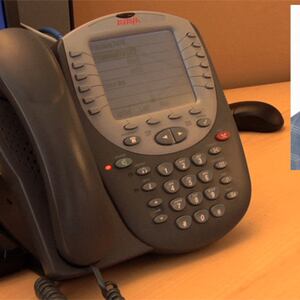Sumner Redstone—who, despite his repeated assertions that he would live forever, died Tuesday at age 97—built his father’s small chain of drive-in movie theaters into an entertainment and media empire that, at its height, was an $80-billion colossus.
It spanned CBS Corp. and Viacom Inc., including the broadcast television network, Paramount Studios, the MTV, Nickelodeon, Showtime, BET, and Comedy Central cable networks, Simon & Schuster publishers, Blockbuster Video, and countless other corporate subsidiaries that Redstone controlled through his private holding company, National Amusements Inc.
Born in the Jewish neighborhood of Boston’s West End as Sumner Murray Rothstein (a family surname that he persuaded his father Mickey to change in 1940 as he prepared to attend Harvard College), Redstone was a throwback to the larger-than-life and occasionally ruthless tycoons who founded Hollywood in the early 20th Century—striving and visionary immigrants such as Louis B. Mayer, Samuel Goldwyn, and Jack L. Warner.
Like those formidable men, Redstone was famous for his piercing intelligence, relentless drive, domineering nature, self-image as a ladies’ man, and his seemingly endless appetite for conflict that extended not only to his business rivals and put-upon executives but also to his own adult children, daughter Shari and son Brent, both of whom had fought him into old age—reminding some observers of Shakespeare’s King Lear—in fierce litigation and intense corporate intrigue.
Shari Redstone, however, ultimately achieved her ambition to run the recently merged, now-$16 billion ViacomCBS empire, and was gracious in victory as she marked her father’s passing.
“My father led an extraordinary life that not only shaped entertainment as we know it today, but created an incredible family legacy,” she told Variety in a statement. “Through it all, we shared a great love for one another and he was a wonderful father, grandfather, and great-grandfather. I am so proud to be his daughter and I will miss him always.”
The elder Redstone, who seldom credited others for business successes but was generous with blame when things fell apart—notoriously firing MTV creator Tom Freston as CEO of Viacom in 2006 when a deal to acquire the social-networking platform MySpace flopped and went to Rupert Murdoch instead—inspired extreme and raw emotions among his underlings and competitors.
He was “the most disliked man in Hollywood,” a prominent talent agent told this writer for a profile of Redstone in 2009, when the economy was collapsing and the aging mogul, like other media tycoons, was suffering financial reverses that threatened his status as a billionaire.
“Who would have thought a year ago that Sumner Redstone would ever have financial difficulties?” Murdoch gloated at the time to one of his newspapers, Australia’s Herald Sun.
“The fact is that Murdoch will pay anything. Just look at the Wall Street Journal—he paid at least $5 billion, he had no competition,” Redstone scoffed when I interviewed him for the profile. “Murdoch is known to make deals without due diligence.”
A former Viacom executive, meanwhile, described Redstone as “a scumbag,” and a second former executive called him “the most egocentric human being you could ever run across.”
“There’s a group of people he says are his friends,” this former Viacom executive added, “who would happily cut his heart out with a rusty knife.”
Yet Redstone reveled in his adversaries—especially Murdoch, the great white whale to Redstone’s Ahab—and believed ardently in his own survival, to say nothing of immortality. “I intend to live forever!” he told me 11 years ago at his hillside mansion in the gated community of Beverly Park, a super-elite aerie above Beverly Hills. As for the prospect of his dying, “I won’t! I’m telling you I won’t!” Redstone shouted, and it wasn’t entirely clear he was joking.
Boasting of his hour-long daily exercise regime and his religious devotion to antioxidants, he compared himself to the title character of The Curious Case of Benjamin Button—starring Brad Pitt and co-produced by Redstone’s Paramount Pictures—about an octogenarian who ages in reverse. “Your headline,” he suggested, “should be ‘The Curious Case of Sumner Redstone.’ ”
A week later, at a New York charity dinner in Redstone’s honor—at which everyone from then-CBS CEO Leslie Moonves to former president Bill Clinton showed up to pay homage—the old mogul, his pompadour improbably strawberry-tinged, nursed a tumbler of cranberry juice, diet tonic, orange juice, and vodka.
“I have one of these every night,” he declared, “because it’s loaded with antioxidants. Every day at lunch, I have half a glass of red wine, a really good Clos de Vougeot burgundy. Tons of antioxidants!” Although he was unsteady on his feet and walked with a pronounced limp, he claimed, “I feel as good as I did when I was 20 years old!”
The defining moment of Redstone’s adult life was undoubtedly the 1979 Copley Plaza Hotel fire in Boston. He was nearly killed, hanging by one arm from a third-floor windowsill as the inferno blistered 45 percent of his body. He endured months of excruciating skin grafts and 60 hours of surgery—and then was forced to return to the hospital with a potentially lethal pulmonary embolism.
“It was pretty bad,” Redstone told a television interviewer decades later. “I wasn’t supposed to live the first night. I was never supposed to walk, but you should see me running on the tennis court today… The interesting thing is that all of the most exciting things that happened to me, or I’ve done in my life, happened after the fire.”
Redstone—a top student at the prestigious Boston Latin School, an Army intelligence officer during World War II and, by most accounts, a brilliant lawyer before joining his father’s movie theater business in the mid-1950s—lived by the maxim, “Go big or go home.” He deployed his expertise in calculated risk-taking to achieve massive business expansion. He acquired Viacom in a 1987 hostile takeover after 16 years of targeting the media company, and in 1994 purchased Paramount Pictures, outbidding Barry Diller, these days chairman and senior executive of The Daily Beast’s parent company IAC. Six years later, Redstone merged Viacom with CBS.
“Sumner Redstone was, for all his business thuggery, one of the last truly great and visionary players in media,” Diller said in a statement. “He would ‘bet the company’ for what he believed, and had the will and tenacity to pull it through whatever the obstacles.”
In 2009, when many in the media business were predicting—and possibly even hoping for—Redstone’s corporate demise, his friend, former Disney chief executive Michael Eisner, told me, “There’s something about Sumner that nobody quite understands. When it gets very tough, the bombastic quality disappears and the steely quietness takes over. I assume that’s the state he’s in now.”
While Redstone stubbornly refused to relinquish control of the voting stock of National Amusements—which in turn gave him ultimate control over Viacom and CBS—he eventually stopped feuding with his daughter Shari over plans for succession and, as his health and cognitive abilities began to fail, she took the reins.
Redstone’s relationship with other family members—like his son Brent, a former Boston prosecutor who sued him in 2006 for his inheritance (since settled for $240 million) and his brother Eddie and nephew Michael, who sued over similar issues—were nothing if not fraught. “I was shocked and it hurt me,” Redstone told me in 2009 about his son’s lawsuit. “The lawyers convinced him to do this.”
Then there were Redstone’s various adventures and misadventures with women.
“He loves women,” Redstone’s pal, the late Paramount chief Robert Evans, told me. “I don’t mean he loves women as a dirty old man. He loves the company of women. And he can be very charming. He plays the piano beautifully, even though his fingers are somewhat distorted from the fire, and he sings.” And women were attracted to Redstone, Evans added. “It’s power. Power is a great aphrodisiac. I gave that line to Henry Kissinger.”
After his 1999 divorce from his first wife Phyllis, Shari and Brent’s mother, Redstone wed Paula Fortunato, a New York City elementary school teacher who was 39 years his junior. Strangely enough, Fortunato was still living with Redstone several months after he publicly announced their divorce after five years of marriage.
During my visit to the mansion in Beverly Park, she sat barefoot and curled up on a sofa, listening to and occasionally participating in the conversation. “That’s unfair,” she complained when I asked Redstone if he might be getting too old to run a public company. “That’s ageism.”
Redstone, meanwhile, couldn’t resist sharing: “When we go out, people don’t think I’m her father. They know I’m her date.”
“He’s a pussycat,” Paula volunteered, and then reminisced about their first date, which was set up by a mutual friend. “He was charming. He held my hand. He would give me a sweet and gentle kiss.”
The divorce, Redstone explained, was necessary because he traveled too much on business and it wasn’t “a life for a wife to have.” Paula confided: “We’re two type-A personalities.”
Their marriage had become increasingly tempestuous. Once, according to witnesses, Sumner became annoyed at a Hollywood party when he was eager to depart and Paula kept him waiting to chat with their Beverly Park neighbor, Sylvester Stallone. “Why don’t you just fuck him already, so we can go home?” Redstone allegedly shouted.
Their friends, meanwhile, marveled at Sumner’s libido. “I had a feeling they were always playfully arguing with each other, saying ‘Go fuck yourself’ and holding hands,” said one frequent dinner companion. “Both of them love to talk about sex. Normally, if you make a dinner appointment with Sumner, he shows up on time, but if they show up 15 minutes, half an hour late, they might say, ‘We had sex four times today!’”
Sadly, as he settled into his 90s and his health continued to deteriorate, Redstone became the object of a public tug-of-war involving his much-younger live-in girlfriend, Sydney Holland, and another close friend, Manuela Herzer, who—along with Shari—seemed to be vying to exert influence over him.
Holland, who met Redstone in 2010, a year after his divorce from Paula Fortunato, reportedly enjoyed the high life and financial benefits of living under the mogul’s roof. But, as The Hollywood Reporter revealed, Redstone kicked Holland out after suspecting her of engaging in a relationship with another man.
“Sumner is a very different and unusual person,” she told Vanity Fair. “I’ve never noticed his age.”



